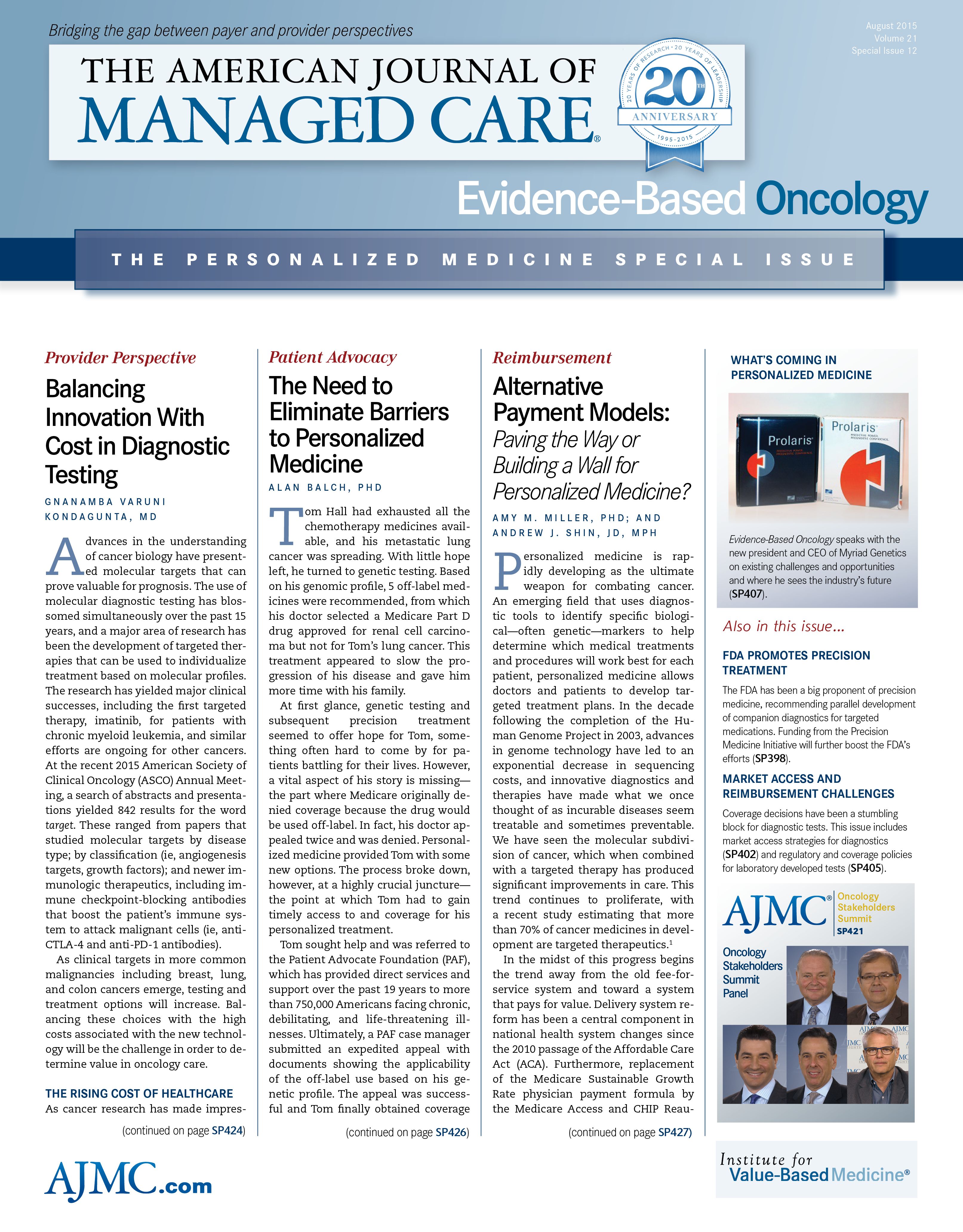- Center on Health Equity & Access
- Clinical
- Health Care Cost
- Health Care Delivery
- Insurance
- Policy
- Technology
- Value-Based Care
GAO: Congress Must End Incentives to Prescribe More Expensive Drugs Through 340B Program
A report from the Government Accountability Office has found that a program for hospitals serving poor and uninsured patients has created perverse incentives to prescribe more drugs and more expensive drugs, particularly in the area of cancer care.
A report from the Government Accountability Office (GAO) has found that a program for hospitals serving poor and uninsured patients has created perverse incentives to prescribe more drugs and more expensive drugs, particularly in the area of cancer care.
Congress must curb these incentives, the GAO recommended on July 6, 2015, not only to hold down Medicare spending but also to benefit patients, who face larger co-payments under the current setup.1
The report examined practices in the 340B Drug Pricing Program and compared spending in 2008 and 2012. The program lets participating hospitals gain access to discounts for outpatient drugs, including expensive oncology therapies. According to GAO, 40% of all US hospitals take part in the program, and most discounted 340B drugs are sold to hospitals. Among the findings:
· Medicare Part B spending per beneficiary in 340B hospitals is more than twice that of other hospitals. For 2012, per-beneficiary spending was $144 in 340B hospitals, compared with approximately $60 in other hospitals.
· Higher spending was not due to different hospital characteristics or patients’ health status. Both HHS and the 340B health program questioned this, but the GAO report outlines how it controlled for these factors.
· While the 340B program was created to assist hospitals with higher rates of uncompensated and charity care, the GAO found that it has evolved. Most hospitals in the program have high rates of these services, but 12% of the 340B participants had small amounts of charity care, and 14% had low amounts of uncompensated care.
Overall, Medicare Part B spending in hospitals has exploded since 2008, with costs per beneficiary more than doubling between 2008 and 2012. However, in every comparison the GAO reported, 340B participants outspent their non-340B counterparts. Of note, the per-beneficiary Part B cost in major teaching hospitals that do not take part in 340B was $105; that amount was less than the $107 per-beneficiary cost for nonteaching hospitals enrolled in 340B.
While it is not unlawful for hospitals to benefit financially from the drug discount program, the report said, such practices are “not consistent with the legislative intent of the 340B program.” Both taxpayers generally and patients individually suffer harm, since Medicare Part B beneficiaries are responsible for 20% co-payment. The report also asks whether all healthcare provided in 340B hospitals is appropriate, and states, “Absent a change in financial incentives, potentially inappropriate spending on drugs may continue.”
In response, HHS said that while the report compares spending by hospital type, it does not compare patient outcomes or quality of care. It is possible, HHS said, that prescribing more drugs has produced better clinical outcomes. GAO responded that it did not attempt to measure patient outcomes, but added, “We have no evidence” that hospitals outside the 340B program had incentives to provide fewer drugs to achieve good outcomes.
Reference
1. Medicare Part B Drugs: action needed to reduce incentives to prescribe 340B drugs at participating hospitals. Government Accountability Office website. http://www.gao.gov/products/GAO-15-442. Published July 6, 2015. Accessed July 24, 2015.

Subjective and Objective Impacts of Ambulatory AI Scribes
January 8th 2026Although the vast majority of physicians using an artificial intelligence (AI) scribe perceived a reduction in documentation time, those with the most actual time savings had higher relative baseline levels of documentation time.
Read More
Telehealth Intervention by Pharmacists Collaboratively Enhances Hypertension Management and Outcomes
January 7th 2026Patient interaction and enhanced support with clinical pharmacists significantly improved pass rates for a measure of controlling blood pressure compared with usual care.
Read More

